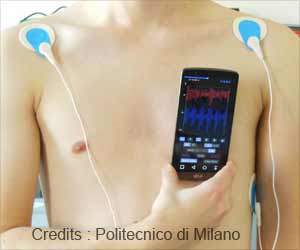Multi-player games can boost rehabilitation performance in physically impaired patients found a new study

‘Physically impaired patient’s performance was improved when they played video games with healthy volunteers, relative to when they were playing on their own’





The team has trialed Balloon Buddies by getting patients to play it on their own in single player mode and then partnered with healthy volunteers during dual player gameplay. They found that the performance of the patient was boosted when they played with a healthy volunteer, compared to if they were playing the game on their own.In addition, they found that the poorer a patient's single player performance was, the greater improvement is seen when they played with another player during dual-player mode.
These findings published today in the Journal of Neuro-Engineering and Rehabilitation (JNER), suggest that by increasing engagement with healthy volunteers, compared to playing alone, patients may be more likely to increase the effort they put into training, which could ultimately lead to greater gains in physical performance.
While the pilot study was limited to 16 patients and 32 healthy participants playing in 16 pairs, the researchers believe this form of rehabilitation through gaming may be beneficial to patients recovering from other illnesses such as musculoskeletal injuries, arthritis, and cerebral palsy.
The researchers are aiming to further develop the game alongside with new multiplayer concepts and are trying to show that it can be used in different settings including patients training with their therapist or with other patients, in community centers or even remotely at home.
Advertisement
“We developed the Balloon Buddy game to enable patients to train with their friends, family or caregivers in a collaborative and playful manner. The technology is still being developed, but we have shown that playing jointly with another individual may lead to increased engagement and better outcomes for patients."
Advertisement
Players are also required to work together to keep the beam horizontal so that the ball doesn't roll off the platform. It is played with a wireless handgrip called GripAble, enabling people with arm weakness to control video games on any standard tablet device.
In the study, the researchers tested the game on 16 patients who had arm weakness following a stroke with a healthy volunteer over three months at Charing Cross Hospital, which is part of Imperial College Healthcare NHS Trust, in 2016. Previously, the game was also tested on 16 healthy pairs with different baseline abilities.
The team will now carry out a larger study to examine whether the game leads to more efficient learning and to examine if patients are more motivated to train for longer periods. They will also explore social implications of interaction such as the effect of patients playing with a relative versus a stranger.
Source-Eurekalert









